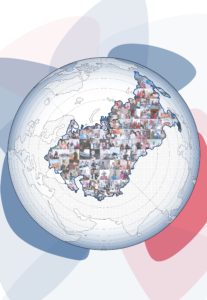 What: Seminar Migration in Eastern Europe and Central Asia: access to health care for all?
What: Seminar Migration in Eastern Europe and Central Asia: access to health care for all?
Where: E 105-108 @ RAI Amsterdam
When: 26 July, 2018/16:30-18:00
Important to know: This workshop will offer translation facilities English – Russian.
This workshop, organized by AFEW Network, will offer a unique opportunity to not just talk about migration, HIV and key populations but also to hear a real-life experience about migration.
We will discuss the general situation on access to health for migrants and the political commitment within Eastern Europe and Central Asia (EECA), the essential package for migrant health for EECA and the situation of migrant’s access to TB/ HIV programs specifically in Tajikistan.
AFEW Network will highlight its research on People Who Use Drugs, including their regional mobility, and raise more clarity on the issue of the labor migration situation and access to prevention, treatment and care for Key Populations in Tajikistan, Kyrgyzstan and Russia. Also, a specific model for NGO service implementation will be presented by AFEW Tajikistan, where women in labor migration and wives of migrants are reached with various HIV, TB, HCV prevention, treatment and care interventions.
Through exchange and panel discussion we aim:
- To inform all on the Universal Health Coverage when it comes to labor migrants in Eastern Europe and Central Asia;
- to develop concrete actions that can be used within the existing platforms to advocate for further action and commitment at government level andto get key populations (PWUD, SW, LGBT/ MSM) and access to health modules in official migrant training protocols;
- to study and discuss the role of NGOs and their collaboration with public (health) systems.
This session is prepared and presented in the framework of the program ‘Bridging the Gaps: health and rights for Key populations’, through the regional EECA approach by AFEW International and AFEW Network.
Agenda
- Introduction: Janine Wildschut, Director of Programmes AFEW International
- Meet a person with experience: Ms. Alimahmadova Zebo
- The essential package for migrant health and the political commitment: opportunities and challenges in EECA: Ms. Elena Vovc, WHO Technical Officer, HIV, STIs and Viral Hepatitis program
- Tajik migrants and access to HIV and TB services. IOM experience to address health needs of migrants: Ms. Rukhshona Qurbonova, IOM Tajikistan Migration Health Programme Coordinator
- Women and labor migration. The role of NGOs in health care, social and legal support of female migrant workers: Ms. Zarina Davlyatova, Project manager AFEW-Tajikistan
- Discussion:
• What can we do to developing regional approaches on HIV prevention and health promotion among labour migrants with emphasis to the needs of specific groups as PWUDs living in EECA?
• Options for cross border collaboration and between public and NGO bodies.• Set priorities and any immediate action. - Conclusion



